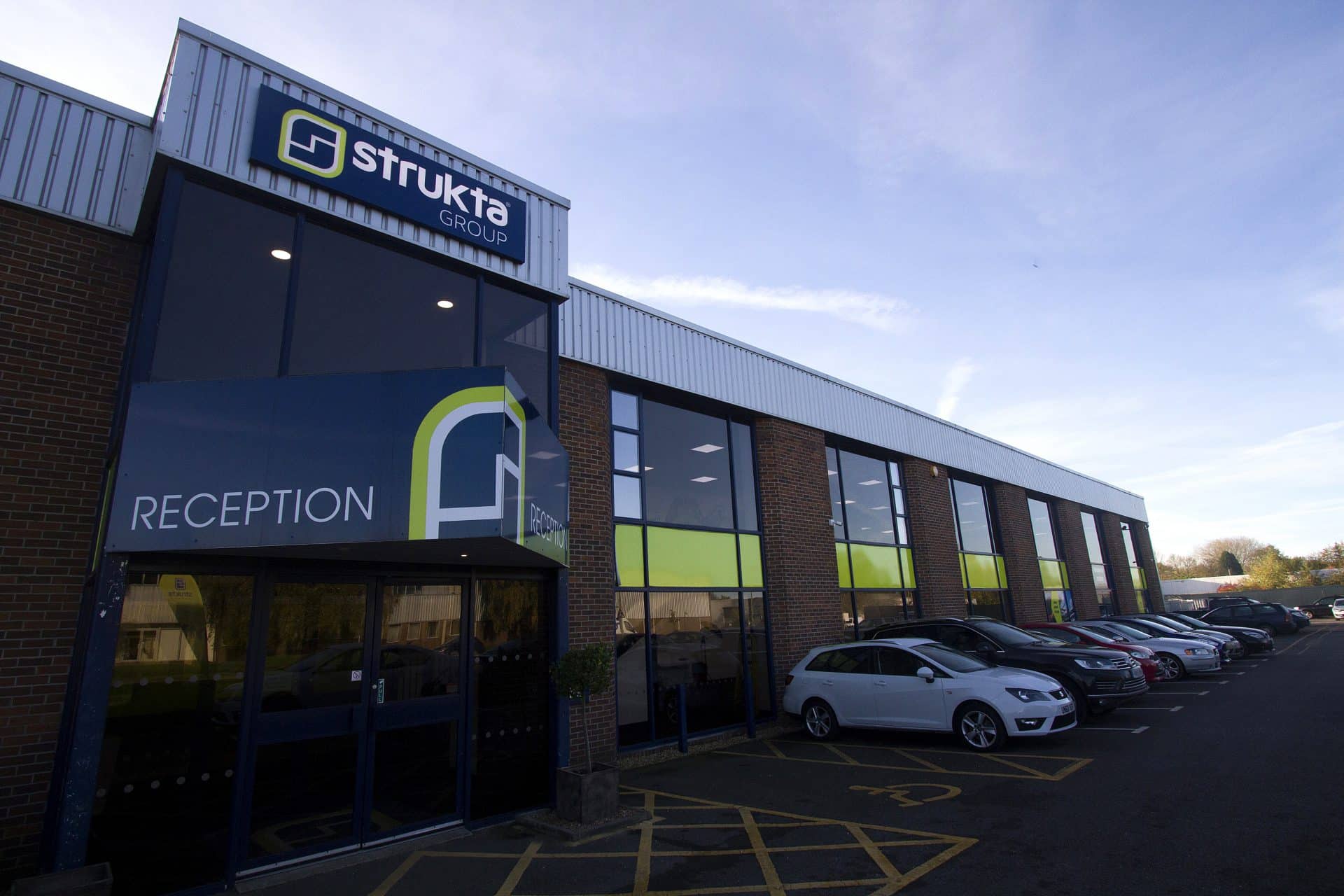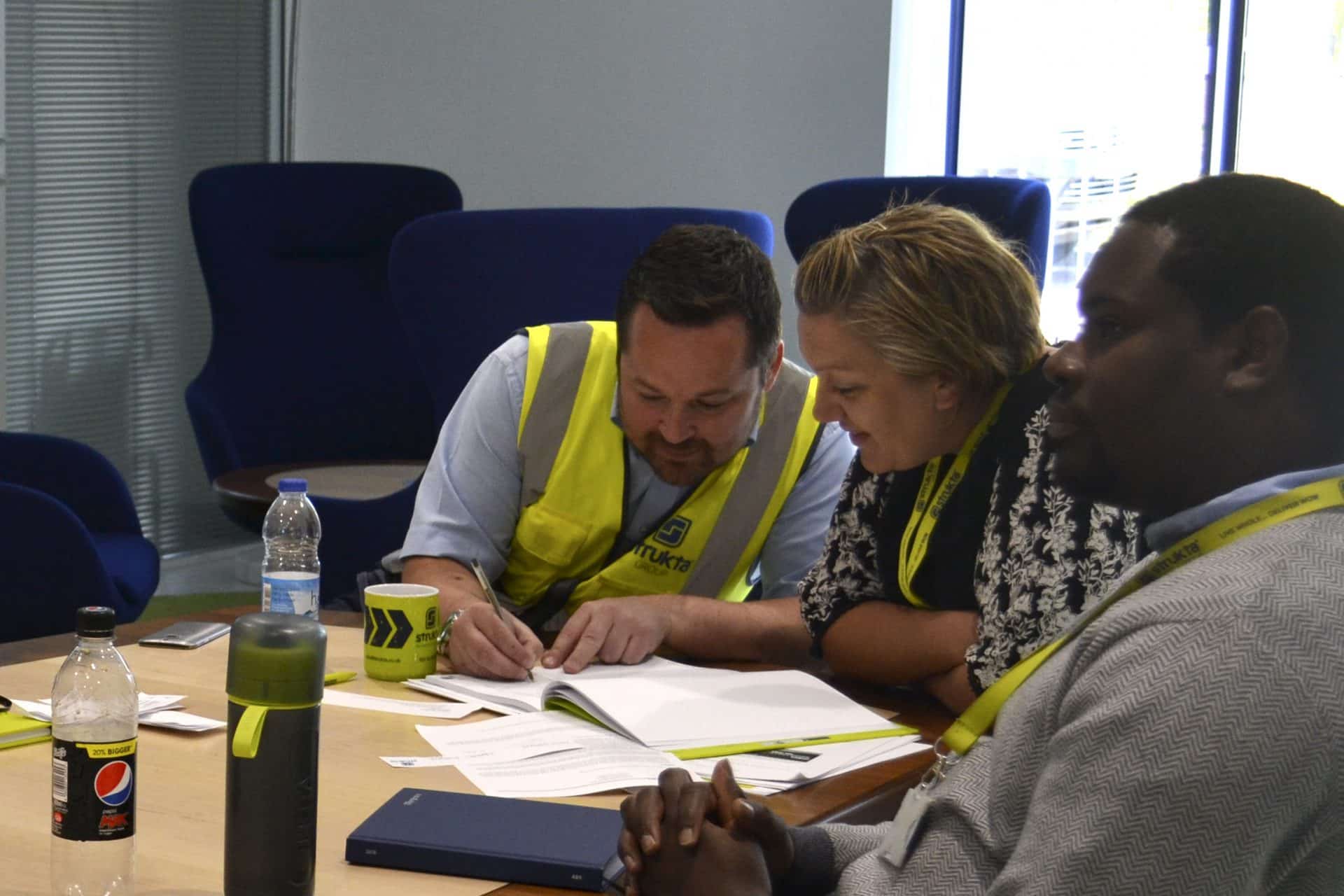15 Surefire Ways to Make Your Team Happy
Dec 06, 2018
When it comes to the construction industry, high labour turnover, headhunting, and relocation are perhaps more common than in other industries. So, knowing that your employees could be at risk of leaving, what can you do as a leader to create systems and processes that reduce that risk and make them feel that being a part of your business is in the best interests of their happiness?
That’s what we are here to discuss.
- Rewards or bonus systems
All staff have different motivations for doing a job, but there is a common theme among most workers that they are there because the financial package is enough for them to do the work. Using cash prizes or bonuses is one of the best incentives to keep workers happy, financially rewarding them for reaching targets, exceeding expectations, and performing above their usual level. Vouchers, discounts, theme park tickets, and extra days off all work a charm too.
strukta style: We have a struktaREWARDS program which entitles us all to great local and national discounts, cashback offers etc.
- Company culture
It is especially true of millennials that they are more likely to work for a company that has a meaningful mission, or at least acts with integrity and transparency. Creating a company culture of positivity not only impresses the best talent, but it helps to retain it too. If your business starts making positive changes, it will be reflected in the labour turnover rates, general employee satisfaction, and sense of comradery.
strukta style: Check out our latest blog post on how we’ve built an amazing company culture.

- Job security
A great way to improve job satisfaction is to make sure that employees feel secure in their roles and that their positions are not under threat. By holding regular appraisals and one-on-one meetings with employees, they will feel that their hard work is being noticed and it will give them greater purpose.
- Supportive management
Most construction workers will tell you that there is an ideal kind of boss on site, they’re the ones with open office hours, who are welcoming and a good listener, they’re the ones who respond to good feedback, and they’re the ones who at the end of the day workers feel they could go to the pub with. They’re more than just a friend though, they lead from the front, being a professional guide and a supportive colleague. Essentially, the basics of being seen as supportive management are to be relatable, responsible, and a good listener.
Resource: Check out why 34% of construction workers say job satisfaction is related to their peers and colleagues.
- Great tools and equipment
A tough job is made a lot easier by having the right tools and equipment to do things efficiently and professionally. In the case of the construction industry, that means being willing to invest in physical tools and machinery so that processes can be done in the best possible manner. Job satisfaction will naturally improve when construction workers are able to work with the latest equipment and technologies, and in turn, job satisfaction will decrease if workers are given ancient equipment or no equipment at all.
Resource: Everything you need is right here.
- Opportunities for progress and promotion
Two-thirds of construction industry workers feel that there are not enough opportunities to advance their careers, for two major reasons. Many feel that the opportunities are hidden and that they are not well informed about what their potential progression could look like. Others feel that a lack of leadership or mentorship doesn’t allow them to gain the skills they need. Resolve these two issues and staff welfare will blossom.
- Establish priorities
If a company establishes its first priority as ‘profit’, that’s not going to appeal to most workers, as often that will mean making cuts to quality and putting more pressure on labour. Some better priorities are safety, efficiency, quality, and the environment. Regularly bringing up and discussing priorities in meetings is a great way for employees to help work towards those goals.
- Encourage training
There is a skill shortage in the construction industry right now, but it’s not the only industry having this problem. So, what does history say that you should do if your talent pool or stream of apprentices dries up? You grow from within and work with what you’ve got. You invest in training and you make your team even more versatile and qualified. By doing this, you’re also going to make them a lot happier, more able, and often more loyal. It also gives you the opportunity to train people in the way that you want them to learn, so that they don’t have to later unlearn bad habits.
- Manage employee workloads
Construction is competitive and quite often a bigger pay packet can be enough to convince some professionals to move elsewhere. However, the jobs that often pay better are short-term and seasonal, with no guarantees for the future. Some construction workers will know that a stable and guaranteed income year round is probably going to work out better than chasing good projects every few months.
- Look after your tools and equipment
We mentioned in point number 5 that investing in high-quality equipment and tools is vital for keeping talented workers, but almost equally as vital is maintaining that equipment. There are few things as frustrating as tools falling apart or being left covered in muck, oil, or cement. For equipment and machinery, a lack of maintenance will lead to disruptions and downtime, which is a frustration for all. If you look after your assets, they will look after you and your employees.
- Be transparent
Staff want to feel that they are valued, respected, and heard, so be sure to engage them in corporate policy, strategy and initiatives. By keeping them up to date and being transparent, they can buy into the company mission and be happier for a longer time, as they feel meaningful about their work.
It should also be encouraged that employees can freely ask questions to learn more about how the business operates, or what the functions and opportunities are for their role. Nobody likes being in the dark, so spread the light and you will improve staff welfare and job satisfaction.
- Show your staff that you care
Treating employees like numbers is a dangerous game. People need their hard work and loyalty to be recognised as an individual. It doesn’t require grand displays of affection, but things like a throwing a sizzling summer BBQ or a well-deserved winter party all go a long way to showing staff that you think about them and want them to feel like they are part of a team.
strukta style: We often have team lunches or breakfasts organised and paid for by the Directors. Just the other day we had a street food van here serving us all hog roast!
- Be consistent and decisive
A business that chops and changes ideas every five minutes is going to irritate its workers, that’s a fact. Talking the talk and walking the walk are different things, and it’s much better to do the latter. When a strategy is made and decided upon, it should be stuck to, unless glaringly obvious errors are included. Being decisive will give staff clarity about what they need to do, whereas changing things too often will create confusion and lead to mistakes; it will also create a lack of faith in the senior management, which is how empires fall!
- Pay what people deserve
Of course, this is easier said than done, there are industry norms, there are expectations, and the financial reality must be managed fairly. Saying this, we all know that a large pay packet is going to keep your team together and keep them happy. If possible, paying just a few percent more than your competitors is a great way to encourage staff retention, productivity, and happiness.
- Be flexible
The final tip is to be flexible, adaptable, and reactive. A lot of workers have different needs, some may have long commutes to be considered, some may have childcare, and some may experience immediate issues that require days off, for health or family reasons for example.
By giving flexible working schedules where employees can choose their own working hours is a great start, as well as implementing job scheduling software that makes it clearer and easier to manage time effectively. If your employee wants the day off to go and watch their child in a play, or to see their best friend get married, this is a great way to improve job satisfaction.

